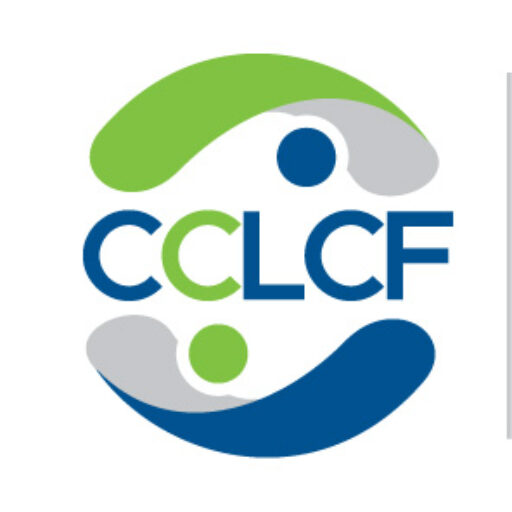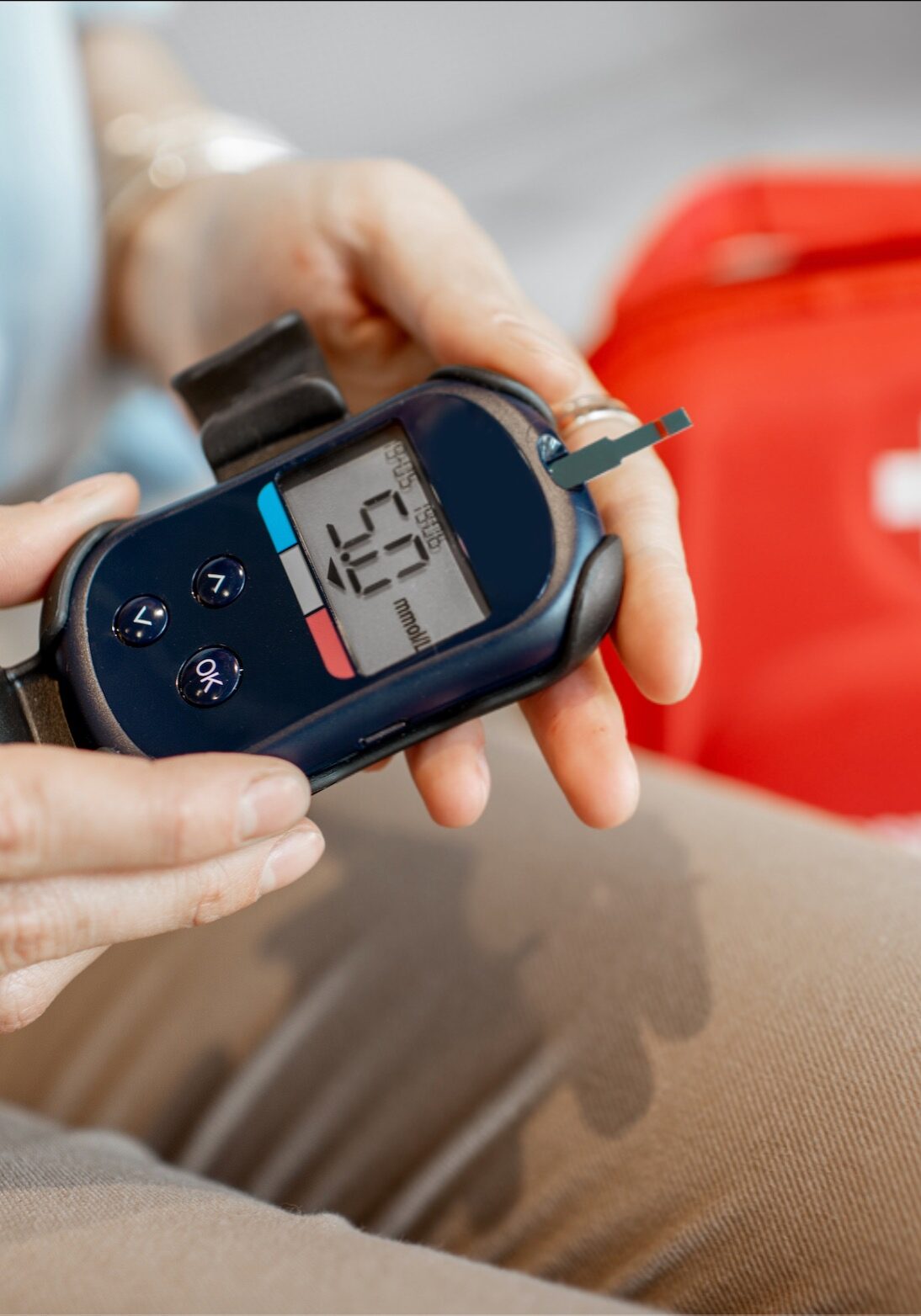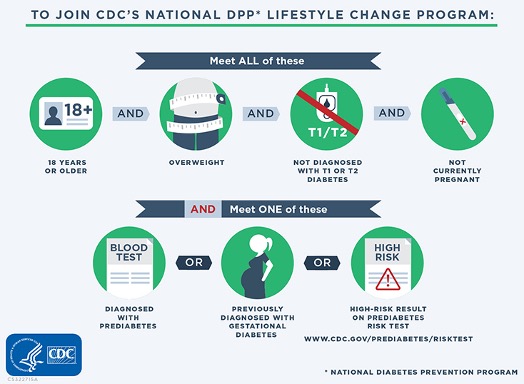96 million American adults – more than 1 in 3 – have prediabetes.
The National Diabetes Prevention Program (National DPP) is a partner with Community Care of the Lower Cape Fear (CCLCF) to prevent or delay type 2 diabetes. CCLCF will make it easier for people at risk for type 2 diabetes to participate in evidence-based lifestyle change programs to reduce their risk of type 2 diabetes. This is conducted as a research-based program focusing on healthy eating and physical activity. The data has proven that community members with prediabetes who take part in a structured lifestyle change program can cut their risk of developing type 2 diabetes by 58% and increased to 71% for individuals over the age of 60.

CDC Recognized Lifestyle Change Program
Congress authorized CDC to establish a preventive program to establish the National Diabetes Prevention Program (National DPP), CCLCF is a partner to create a lifestyle change program within the Cape Fear Region (Bladen, Brunswick, Columbus, New Hanover, Onslow and Pender). This nationwide effort has proven throughout a lifestyle change program has prevented and/or delayed type 2 diabetes in adults with prediabetes tendencies.
This nationwide effort brings community organizations, like CCLCF, private insurers, employers, health care organizations, faith-based organizations, and government agencies together to achieve a greater impact on reducing type 2 diabetes.
The key element in the success of this program is the lifestyle change implementation. This program provides a trained lifestyle coach, a CDC-approved curriculum, and continued support for over a course of a year for those who meet the below eligibility.

ELIGIBILITY
To participate in CCLCF’s CDC-recognized lifestyle change program, you’ll need to meet ALL 4 of these requirements:
You’ll also need to meet 1 of these requirements:
- Had a blood test result in the prediabetes range within the past year (includes any of these tests and results):
- Hemoglobin A1C: 5.7–6.4%.
- Fasting plasma glucose: 110–125 mg/dL.
- 2-hour plasma glucose (after a 75 g glucose load): 140–199 mg/dL.
- Be previously diagnosed with gestational diabetes (diabetes during pregnancy).
- Received a high-risk result (score of 5 or higher) on the Prediabetes Risk Test.

